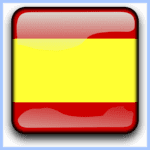Exercises – Grammar
Practice Spanish, Portuguese, Italian, and French with our free, interactive online exercises. Designed to be fun and engaging, our platform offers comprehensive lessons, detailed explanations, and a variety of drills and quizzes. Master grammar and vocabulary with a focus on different tenses. Whether you’re a beginner or advanced learner, this platform adapts to your needs, helping you improve your language skills step by step.
Read related lesson: Alphabet & Pronunciation
Read related lesson: Similarities to English & Particularities of The Spanish Language
Read related lesson: Gender & Plural
Read related lesson: Cardinal Numbers
Read related lesson: Subject Personal Pronouns
Read related lesson: Present Indicative Tense I
Read related lesson: The Articles
Read related lesson: Interrogative Pronouns & Adjectives
Learn more about the lessons covered in this level.











